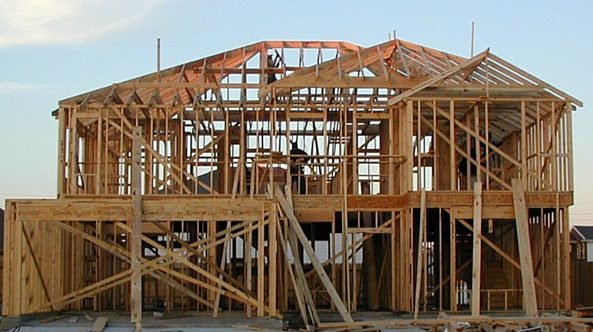House builders Persimmon have become the latest company to benefit from the UK’s ever-present housing shortfall after revealing a sudden rise in annual profits.
An increase in selling prices and a rise in the number of homes sold, in combination with a lack of supply in the market, bumped sales up by 13% to £2.9bn in the year to the end of December, while pre-tax profits climbed up by more than 33% to a total of £638m.
This good result means the FTSE 100-listed house builder will pay out more cash to its shareholders than originally announced. The company published that they will pay a 110p dividend to investors on April 1, a significant increase from the planned payment of 10p per share.
The additional profit means shareholders are now on track to get a cash return of £2.76bn, in other words £9 a share, by 2021. This will be a 45% increase from the original plan set out in 2012 to pay out £1.9bn by 2021, which would have been £6.20 a share.
On average, the selling price of Persimmon’s homes went up 4.5% to £199,127 last year, together with the number of homes selling rising 8% to 14,572. The building company also purchased a further 20,501 plots of land to add to an already healthy portfolio of potential development sites.
Over the last four years, Persimmon managed to increase their numbers of houses sold by almost 50% every year.
The company explains its success with the currently “confident housing market” in the UK, encouraged by stronger employment levels and an improvement in disposable household incomes.
Furthermore Persimmon also mentioned the government’s Help to Buy scheme, a scheme that assists first-time buyers in getting on the property ladder, was helpful in supporting the mortgage market.
Nicholas Wrigley, group chairman, said: “Persimmon delivered an outstanding performance in 2015, supported by improving customer sentiment and a mortgage market which is responding to customer demand.”
“Customer activity in the early weeks of the 2016 spring season has been encouraging and today’s further £860m enhancement to the capital return plan to a total of £9 per share is a measure of the board’s confidence in the group’s future progress.”
When asked about the UK’s forthcoming decision whether to leave the EU or stay, Jeff Fairburn, chief executive of Persimmon, said he was not one of the signatories of a letter of business leaders advocating against Britain leaving the EU.
Explaining the decision, he said: “As a board we have decided to remain neutral on this issue. As a business we are predominantly nationally based: our buyers are from this country, our suppliers and support network are based in the UK.”
“We decided the effect on us would be relatively small, and in that case we would prefer our buyers and workers to make up their own minds.”
“In the short term the potential effect will be one largely of confidence, as we have seen in elections, with changes in the level of confidence in the market. Our buyers, who are largely first-time buyers, if they have secure jobs and income and if the lending market is stable, they won’t put off buying because of the vote on Europe.”
Mr Fairburn named the opening of new sites as swiftly as possible and the finding of skilled labour as the biggest two challenges for the industry. Furthermore he called for improvements to be made to the planning system to allow homes to be build more quickly.
Bank of America Merrill Lynch reiterated its ‘buy’ rating for Persimmon, adding that it “traded well in 2015 and into 2016 and despite strong land investment, it ended last year with a much better net cash position than at the start”.
Robin Hardy, at Shore Capital, said: “This news on the dividend was largely expected but that it has happened is likely to create a positive response and after a very weak performance yesterday we could see a near term bounce. Macro issues, especially the Brexit, are likely to remain more significant for the stock and sector in the near term, however.”
Last week, house builder Bovis also reported record profits for the year.
Source: The Telegraph










